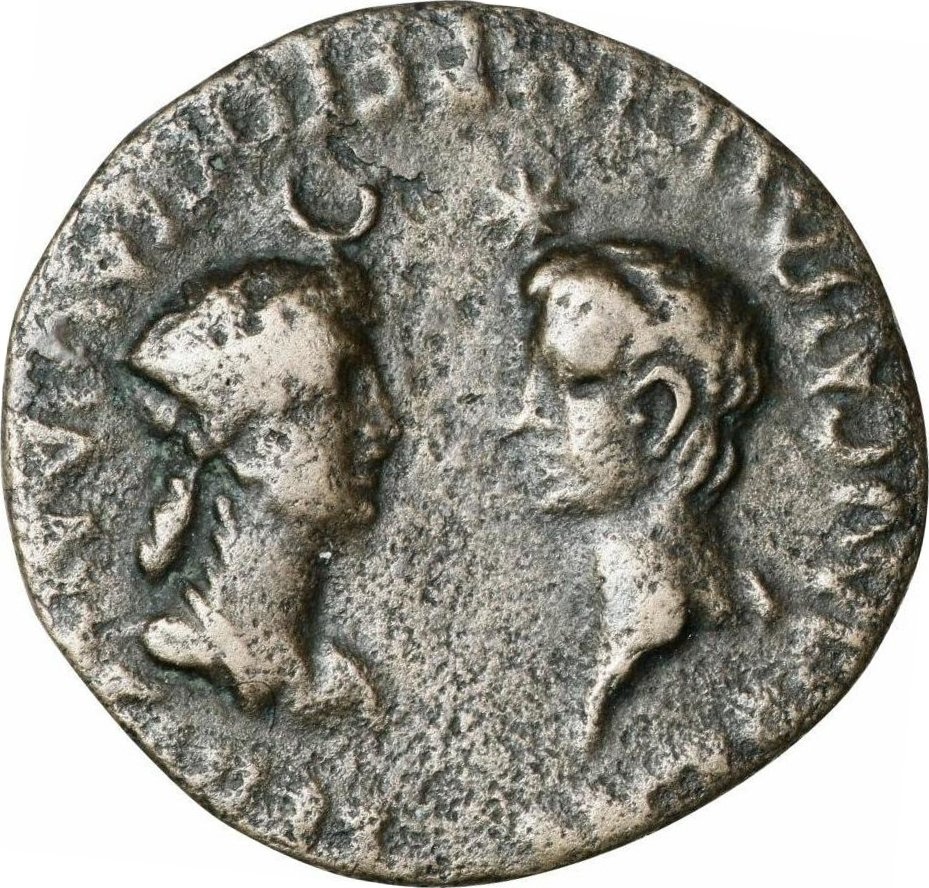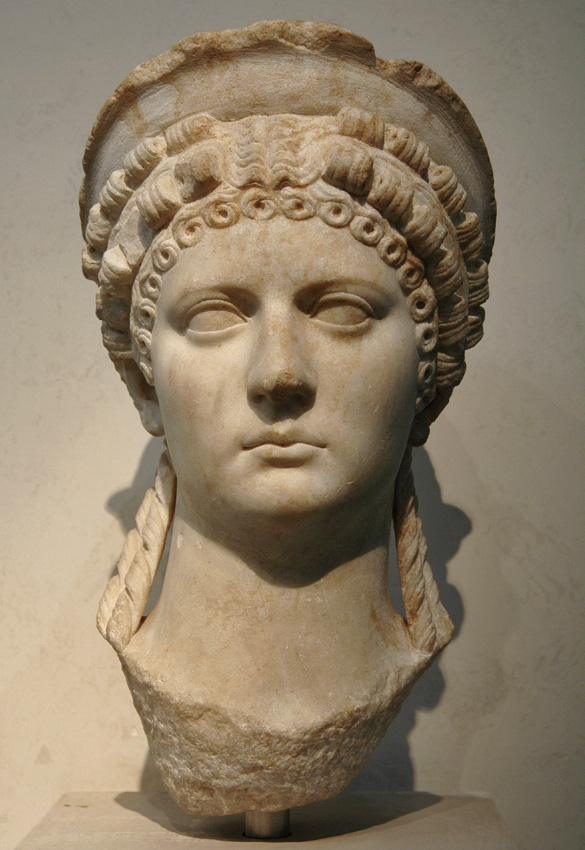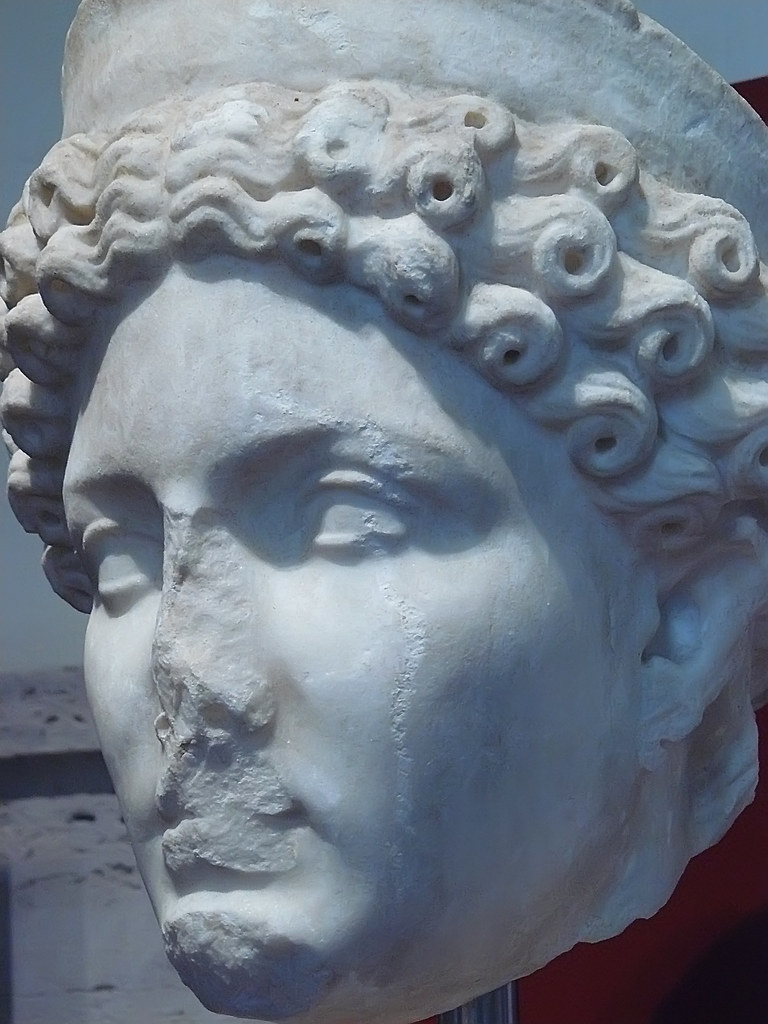Nero, The Historic Husband Of Claudia Octavia
"Historic husband of Claudia Octavia" refers to Nero Claudius Caesar Augustus Germanicus, who ruled as the fifth Roman emperor from 54 to 68 AD.
Nero's marriage to Claudia Octavia was arranged for political reasons, and their union was marked by instability. Nero divorced Octavia in 62 AD and banished her to the island of Pandataria. He later had her executed on charges of adultery.
Nero's reign was characterized by tyranny and extravagance, and he is remembered as one of the most notorious emperors in Roman history.
Historic Husband of Claudia Octavia
The historic husband of Claudia Octavia was Nero Claudius Caesar Augustus Germanicus, who ruled as the fifth Roman emperor from 54 to 68 AD.
- Emperor: Nero was the fifth Roman emperor.
- Marriage: Nero married Claudia Octavia in 53 AD.
- Divorce: Nero divorced Octavia in 62 AD.
- Execution: Nero had Octavia executed in 62 AD.
- Reign: Nero's reign was characterized by tyranny and extravagance.
- Legacy: Nero is remembered as one of the most notorious emperors in Roman history.
Nero's marriage to Claudia Octavia was arranged for political reasons, and their union was marked by instability. Nero divorced Octavia in 62 AD and banished her to the island of Pandataria. He later had her executed on charges of adultery.
Nero's reign was characterized by tyranny and extravagance, and he is remembered as one of the most notorious emperors in Roman history. He was responsible for the deaths of his mother, Agrippina the Younger, and his first wife, Claudia Octavia. He also ordered the Great Fire of Rome in 64 AD.
| Name | Birth | Death | Reign |
|---|---|---|---|
| Nero Claudius Caesar Augustus Germanicus | 15 December, 37 AD | 9 June, 68 AD | 54-68 AD |
Emperor
Nero's status as the fifth Roman emperor is significant in relation to his marriage to Claudia Octavia because it highlights the political nature of their union. Nero's marriage to Octavia was arranged by his mother, Agrippina the Younger, in order to strengthen her own political position. Octavia was the daughter of Claudius, Nero's adopted father and predecessor, and her marriage to Nero helped to legitimize his rule.
- Political alliances: Marriages between members of different political families were often used to form alliances and secure power. Nero's marriage to Octavia was part of a broader strategy to consolidate his power and maintain the support of the Roman elite.
- Dynastic legitimacy: Marrying Octavia, who was descended from the Julio-Claudian dynasty, helped to legitimize Nero's rule. It also ensured that any children born from the marriage would have a strong claim to the throne.
- Personal relationships: Despite the political motivations behind their marriage, Nero and Octavia appear to have had a genuine affection for each other. However, their relationship was strained by Nero's infidelities and his increasingly erratic behavior.
- Tragic end: Nero's divorce and subsequent execution of Octavia marked a turning point in his reign. It alienated many of his supporters and contributed to his growing unpopularity.
In conclusion, Nero's status as the fifth Roman emperor was closely intertwined with his marriage to Claudia Octavia. Their union was a political alliance that helped to legitimize Nero's rule, but it was also a personal relationship that ended in tragedy.
Marriage
The marriage between Nero and Claudia Octavia was a significant event in Roman history, as it marked the beginning of Nero's reign as emperor. Octavia was the daughter of Claudius, Nero's adopted father and predecessor, and her marriage to Nero helped to legitimize his rule. The marriage was also politically advantageous for Nero, as it strengthened his ties to the Julio-Claudian dynasty.
Nero and Octavia's marriage was not a happy one. Nero was unfaithful to Octavia, and he eventually divorced her in 62 AD. However, despite the unhappy marriage, Octavia's status as Nero's wife gave her a certain amount of power and influence. She was able to use her position to help others, and she was known for her generosity and kindness.
The marriage between Nero and Claudia Octavia is an important example of the political marriages that were common in ancient Rome. These marriages were often arranged for political reasons, rather than for love. However, despite the political motivations behind their marriage, Nero and Octavia appear to have had a genuine affection for each other. Their marriage was a complex one, but it played an important role in Roman history.
Divorce
The divorce of Nero and Claudia Octavia in 62 AD was a significant event in Roman history. It marked the end of Nero's marriage to the daughter of his adopted father and predecessor, Claudius. The divorce was a public and humiliating event for Octavia, and it damaged Nero's reputation.
- Political implications
The divorce had a number of political implications. It weakened Nero's ties to the Julio-Claudian dynasty, and it alienated many of his supporters. The divorce also led to a number of uprisings against Nero's rule. - Personal implications
The divorce was also a personal tragedy for Octavia. She was publicly humiliated and divorced without any fault of her own. The divorce also damaged her reputation and made it difficult for her to remarry. - Historical implications
The divorce of Nero and Octavia is an important example of the political and personal consequences of divorce in ancient Rome. It also provides insight into the character of Nero, who was increasingly erratic and tyrannical during his reign.
The divorce of Nero and Claudia Octavia is a complex and fascinating event in Roman history. It is a story of political intrigue, personal tragedy, and historical significance.
Execution
The execution of Claudia Octavia in 62 AD is a significant event in the history of the Roman Empire. It is also a key component of the story of Nero, Octavia's husband and the fifth Roman emperor.
Nero's decision to execute Octavia was a brutal and tyrannical act. It was also a political move, designed to remove a potential rival to his power. Octavia was the daughter of Claudius, Nero's adopted father and predecessor, and she was seen by many as the rightful heir to the throne. By executing Octavia, Nero was eliminating a threat to his rule.
The execution of Octavia also had a significant impact on Nero's reputation. It further damaged his relationship with the Roman people, who were already growing weary of his tyranny. The execution also led to a number of uprisings against Nero's rule.
The execution of Claudia Octavia is an important event in Roman history. It is a reminder of the brutality and tyranny of Nero's reign. It is also a reminder of the importance of the rule of law and the protection of human rights.
Reign
Nero's reign as emperor was marked by tyranny and extravagance. These characteristics are closely connected to his role as the historic husband of Claudia Octavia.
- Tyranny
Nero's reign was characterized by tyranny and cruelty. He was responsible for the deaths of his mother, Agrippina the Younger, and his first wife, Claudia Octavia. He also ordered the Great Fire of Rome in 64 AD, which destroyed much of the city. Nero's tyranny alienated many of his supporters and led to a number of uprisings against his rule. - Extravagance
Nero was also known for his extravagance and lavish lifestyle. He spent vast sums of money on building projects, such as the Domus Aurea, or "Golden House," which was a palace complex that covered over 300 acres. Nero also spent lavishly on entertainment, such as gladiatorial contests and chariot races. His extravagance further alienated the Roman people and contributed to his growing unpopularity.
Nero's tyranny and extravagance had a significant impact on his marriage to Claudia Octavia. He divorced Octavia in 62 AD and had her executed the following year. Octavia's execution was a clear example of Nero's cruelty and tyranny. It also showed that he was willing to sacrifice his own family for his own political gain.
The connection between Nero's reign and his role as the historic husband of Claudia Octavia is a complex one. It is a story of power, ambition, and tragedy. It is also a reminder of the importance of the rule of law and the protection of human rights.
Legacy
Nero's legacy as one of the most notorious emperors in Roman history is closely connected to his role as the historic husband of Claudia Octavia. His treatment of Octavia, including his divorce and execution of her, is a key factor in his negative reputation.
Nero's actions towards Octavia demonstrate his cruelty and tyranny. He divorced her without just cause and had her executed on false charges of adultery. These actions not only alienated the Roman people but also set a dangerous precedent for the treatment of women in Roman society.
The connection between Nero's legacy and his role as the historic husband of Claudia Octavia is a complex one. It is a story of power, ambition, and tragedy. It is also a reminder of the importance of the rule of law and the protection of human rights.
The following are some key insights about the connection between Nero's legacy and his role as the historic husband of Claudia Octavia:
- Nero's treatment of Octavia is a key factor in his negative reputation.
- Nero's actions towards Octavia demonstrate his cruelty and tyranny.
- Nero's legacy as one of the most notorious emperors in Roman history is closely connected to his role as the historic husband of Claudia Octavia.
- The connection between Nero's legacy and his role as the historic husband of Claudia Octavia is a complex one.
These insights can help us to understand the importance of the rule of law and the protection of human rights. They can also help us to understand the dangers of tyranny and the importance of speaking out against injustice.
FAQs about the Historic Husband of Claudia Octavia
This section provides answers to frequently asked questions about Nero, the historic husband of Claudia Octavia.
Question 1: Who was the historic husband of Claudia Octavia?
Answer: Nero Claudius Caesar Augustus Germanicus, also known as Nero, was the fifth Roman emperor, reigning from 54 to 68 AD. He was the historic husband of Claudia Octavia.
Question 2: When did Nero marry Claudia Octavia?
Answer: Nero married Claudia Octavia in 53 AD.
Question 3: Why did Nero divorce Claudia Octavia?
Answer: Nero divorced Claudia Octavia in 62 AD for political reasons. He wanted to marry Poppaea Sabina, a woman he was in love with.
Question 4: What happened to Claudia Octavia after her divorce from Nero?
Answer: After her divorce from Nero, Claudia Octavia was banished to the island of Pandataria. She was later executed on Nero's orders in 62 AD.
Question 5: What was Nero's reputation as an emperor?
Answer: Nero is remembered as one of the most notorious emperors in Roman history. His reign was characterized by tyranny, extravagance, and cruelty.
Question 6: How did Nero's treatment of Claudia Octavia contribute to his negative reputation?
Answer: Nero's treatment of Claudia Octavia is a key factor in his negative reputation. His divorce and execution of her demonstrate his cruelty and tyranny.
Summary: Nero's marriage to Claudia Octavia was a political alliance that helped to legitimize his rule. However, his treatment of Octavia, including his divorce and execution of her, is a key factor in his negative reputation.
Transition to the next article section: The following section will explore Nero's reign in more detail, examining his policies, accomplishments, and failures.
Tips Related to the Historic Husband of Claudia Octavia
Understanding the historical context and significance of Nero's relationship with Claudia Octavia can provide valuable insights. Here are some tips to enhance your knowledge:
Tip 1: Explore Ancient Roman Marriage Practices: Examine the cultural and political factors that influenced marriages in ancient Rome. This will provide context for Nero's marriage to Octavia, which was primarily driven by political alliances.
Tip 2: Study the Julio-Claudian Dynasty: Research the lineage and history of the Julio-Claudian dynasty, to which both Nero and Claudia Octavia belonged. This will help you understand the power dynamics and rivalries within the imperial family.
Tip 3: Analyze Nero's Character: Investigate Nero's personality, motivations, and actions throughout his reign. This will shed light on his decision-making process and his treatment of Octavia.
Tip 4: Examine the Role of Women in Roman Society: Explore the legal, social, and political status of women in ancient Rome. This will provide context for Octavia's experiences and the limitations she faced.
Tip 5: Consider the Impact of Octavia's Execution: Analyze the consequences of Nero's decision to execute Octavia. This will help you understand the political and social repercussions of his actions.
Summary: By following these tips, you can deepen your understanding of the historical context and significance of Nero's relationship with Claudia Octavia. This knowledge can provide insights into the complexities of ancient Roman politics and society.
Transition to the article's conclusion: These tips serve as a starting point for exploring this fascinating topic further. By delving into the historical details and broader implications, you can gain a comprehensive understanding of Nero's reign and its impact on Claudia Octavia's life and legacy.
Conclusion
The exploration of Nero, the historic husband of Claudia Octavia, has revealed the intricate relationship between power, politics, and personal tragedy in ancient Rome. Throughout his reign, Nero's actions, including his treatment of Octavia, exemplified the tyrannical and excessive nature of his rule.
Nero's negative legacy serves as a reminder of the importance of justice, compassion, and the protection of human rights. By understanding the historical context and significance of his relationship with Octavia, we gain valuable insights into the complexities of ancient Roman society and the enduring impact of historical events.
Unveiling The Legacy: Anthony Bourdain's Daughter And Her Journey
Unveiling The Enduring Charm Of "Charlie's Daughter, Two And A Half"
Tragedy And Triumph: Unraveling The Heartbreaking Loss And Inspiring Legacy Of Mike Tyson's Drowned Daughter



ncG1vNJzZmislayurH2NmqSsa16Ztqi105qjqJuVlru0vMCcnKxmk6S6cLTIrKuoqpmYeqnB0puYp5xdpLNur8uarJ2hkWK8pMDAr6CaZpipuq0%3D